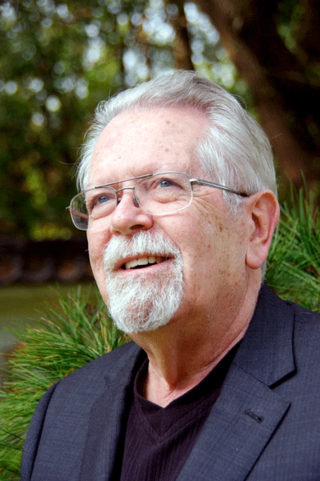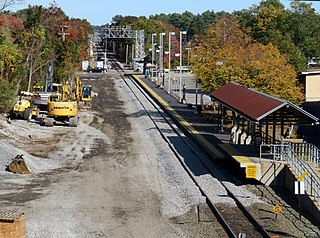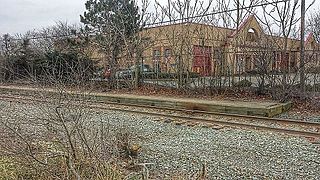The Christian countercult movement or the Christian anti-cult movement is a social movement among certain Protestant evangelical and fundamentalist and other Christian ministries and individual activists who oppose religious sects that they consider cults.
Daniel Kriegman is an American psychologist and writer whose work focuses on the interface between psychoanalysis and evolutionary biology. He was a faculty member at the Massachusetts Institute for Psychoanalysis, a founder of the Psychoanalytic Couple and Family Institute of New England, and a creative consultant for the Edgeline Films (Showtime) docu-series "Couples Therapy." Dr. Kriegman was formerly Chief Psychologist and the Director of Supervision and Training at the Massachusetts Treatment Center for Sexually Dangerous Offenders, as well as the Clinical Director for the maximum-security, intensive-treatment unit for adolescents in Boston.

John Gordon Melton is an American religious scholar who was the founding director of the Institute for the Study of American Religion and is currently the Distinguished Professor of American Religious History with the Institute for Studies of Religion at Baylor University in Waco, Texas where he resides. He is also an ordained minister in the United Methodist Church.
A cult is a group which is typically led by a charismatic and self-appointed leader, who tightly controls its members, requiring unwavering devotion to a set of beliefs and practices which are considered deviant. It is in most contexts a pejorative term, also used for a new religious movement or other social group which is defined by its unusual religious, spiritual, or philosophical beliefs and rituals, or its common interest in a particular person, object, or goal. This sense of the term is weakly defined – having divergent definitions both in popular culture and academia – and has also been an ongoing source of contention among scholars across several fields of study.

Route 128 station is a passenger rail station located at the crossing of the Northeast Corridor and Interstate 95/US Route 1/Route 128 at the eastern tip of Dedham and Westwood, Massachusetts, United States. The station is shared by Amtrak and the Massachusetts Bay Transportation Authority (MBTA). It is served by most MBTA Commuter Rail Providence/Stoughton Line trains, as well as by all Amtrak Northeast Regional and Acela intercity trains. The station building, platforms, and parking garage are all fully accessible. It is the 23rd busiest Amtrak station in the country and the fifth busiest in New England.
The anti-cult movement consists of various governmental and non-governmental organizations and individuals that seek to raise awareness of cults, uncover coercive practices used to attract and retain members, and help those who have become involved with harmful cult practices.
The Dialog Center International (DCI) is a Christian counter-cult organization founded in 1973 by a Danish professor of missiology and ecumenical theology, Dr. Johannes Aagaard (1928–2007).

South Attleboro station is a temporarily closed MBTA Commuter Rail Providence/Stoughton Line station in Attleboro, Massachusetts. It is located under Newport Avenue in the South Attleboro neighborhood, just north of the Rhode Island border. The station had two side platforms serving the two tracks of the Northeast Corridor, connected by a footbridge to a park-and-ride lot.

Foxboro station is an MBTA Commuter Rail station in Foxborough, Massachusetts, located adjacent to Gillette Stadium and the Patriot Place shopping center. The station has a single side platform serving the main track of the Framingham Secondary. It is the terminus of a branch of the Franklin/Foxboro Line service, and is served by trains from Boston via the Franklin/Foxboro Line and from Providence via the Providence/Stoughton Line during events at Gillette Stadium.
Walter Ralston Martin was an American Baptist Christian minister and author who founded the Christian Research Institute in 1960 as a parachurch ministry specializing as a clearing-house of information in both general Christian apologetics and in countercult apologetics. As the author of the influential The Kingdom of the Cults (1965), he has been dubbed by the conservative Christian columnist Michael J. McManus, the "godfather of the anti-cult movement".

The Twelve Tribes, formerly known as the Vine Christian Community Church, the Northeast Kingdom Community Church, the Messianic Communities, and the Community Apostolic Order, is a new religious movement founded by Gene Spriggs that sprang out of the Jesus movement in 1972 in Chattanooga, Tennessee. The group calls itself an attempt to recreate the 1st-century church as it is described in the Book of Acts. The group's origins in Chattanooga led to planted churches in surrounding areas. In the late seventies, the group began a community in Island Pond, Vermont. As their relationship with the Chattanooga community deteriorated, the group eventually left Tennessee and moved primarily to Vermont.

The Cape Codder was a seasonal passenger train operated by Amtrak between New York City and Hyannis, Massachusetts, on Cape Cod. It operated during the summer between 1986 and 1996. It was the first regular service from New York to the Cape since 1964. The New York, New Haven and Hartford Railroad previously had operated a train under this name until 1958.
Ronald M. Enroth was an American professor of sociology at Westmont College in Santa Barbara, California, and an evangelical Christian author of books concerning what he defined as "cults" and "new religious movements" and important figure in the Christian countercult movement.

The Providence/Stoughton Line is an MBTA Commuter Rail service in Massachusetts and Rhode Island, primarily serving the southwestern suburbs of Boston. Most service runs entirely on the Northeast Corridor between South Station in Boston and Providence station or Wickford Junction station in Rhode Island, while the Stoughton Branch splits at Canton Junction and terminates at Stoughton. It is the longest MBTA Commuter Rail line, and the only one that operates outside Massachusetts. The line is the busiest on the MBTA Commuter Rail system, with 17,648 daily boardings in an October 2022 count.

Attleboro station is a commuter rail station on the MBTA's Providence/Stoughton Line located in Attleboro, Massachusetts. By a 2018 count, Attleboro had 1,547 daily riders, making it the fourth busiest station on the system outside Boston.

Norfolk station is an MBTA Commuter Rail station in Norfolk, Massachusetts, served by the Franklin/Foxboro Line. The station has one platform which serves a single track, with a mini-high section for accessibility. The Norfolk County Railroad opened through the North Wrentham village of Wrentham in 1849. A branch line to Medway was open from 1852 to 1864. The station was renamed Norfolk along with the town in 1870. Several different railroads operated the line, with the New York, New Haven and Hartford Railroad running it for much of the 20th century. Massachusetts Bay Transportation Authority (MBTA) subsidies began in 1966, and the agency bought the line in 1973. The mini-high platform was added in 1990.

Robert Passantino, was an American author and journalist who wrote on subjects related to Christian apologetics, philosophy, and the Christian countercult movement.
The Dighton and Somerset Railroad, currently referred to as the Dean Street Industrial Track, is a railroad that ran between Fall River and Braintree, Massachusetts. It opened in 1866; from the 1890s to the 1930s and again in the late 1950s, it was the primary rail route from Boston to the South Coast. Passenger service ended in stages with the final regular service in 1958, though freight service on two short segments continues into the 21st century. MBTA Commuter Rail service is proposed to be extended onto the northern part of the line around 2030 as part of the South Coast Rail project.

Taunton station was a passenger rail station located south of Oak Street in downtown Taunton, Massachusetts. As Taunton Central station, it served local and Boston-focused routes from 1836 to 1964. A later station at the same site served Amtrak's Cape Codder from 1986 to 1996, and Cape Cod and Hyannis Railroad commuter trains in 1988.

Middleborough station is an under-construction MBTA Commuter Rail station in Middleborough, Massachusetts. It is expected to open in mid-2024 as part of the South Coast Rail project, replacing Middleborough/Lakeville station for regular service. The station will have a single side platform located inside the wye between the Middleborough Main Line and the Middleboro Secondary.












